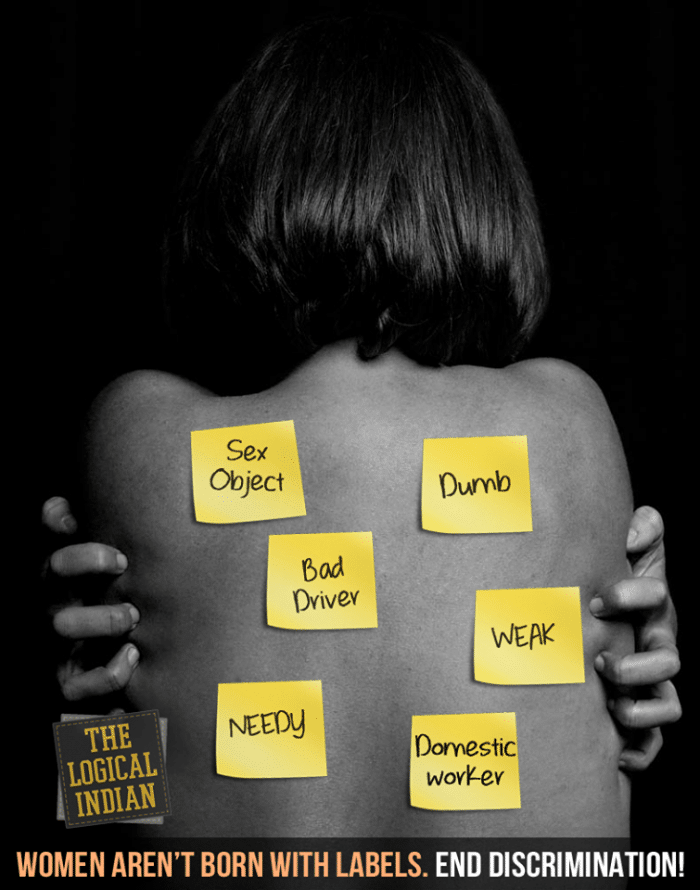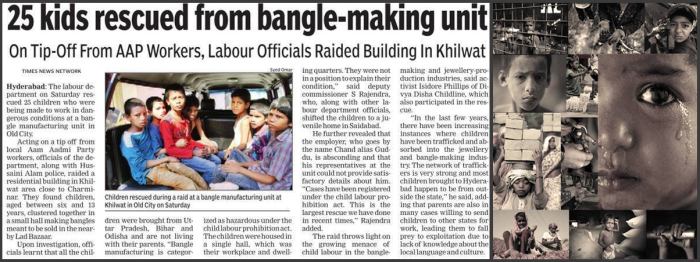
If you keep up with world news, you can’t help but have read (and hopefully been horrified by) the heartbreaking and anger-inducing stories coming out of India with regards the recent rapes and hangings of Indian women.
Last month, news broke (with accompanying graphic images) of two teenage cousins who were gang-raped and then hung from a nearby mango tree. Five men were arrested for the crime – but only after relatives of the girls refused to let their bodies be cut down until police investigated.
Where the crime was exacerbated (if that’s even possible) is that two of the five arrested were police officers, who refused to help the families when they reported the girls as missing.
Even as the horrors of this crime were still fresh in the minds of those in the village of Uttar Pradesh where the rapes and murders happened, two more reports came out of identical crimes involving a woman in her 40’s and a 19-year old girl.
Tragically, these stories are nothing new. The world was outraged in 2012 when a 23-year old woman was gang-raped on a bus for almost an hour, beaten and then thrown to the side of the road to die. She later died of her injuries in hospital.
In 2013, three young sisters – aged only 7, 9 and 11 – were raped and murdered after disappearing from their school. Much like the other rapes, family members speak about the lack of gravity given to the cases by the police, who initially dismissed the deaths as accidental.
These are just the stories that make the news – external sources believe the numbers are in their thousands, if not more, with the perpetuators (and those that should be protecting the women of India) truly believing nothing wrong has been done. At least, not by the men…
Endemic Cultures and the Power of Belief
Much like many ancient cultures, India has a complicated history of women often being seen as second class to their male counterparts.
While the Hindu faith places women on an equal status?(and blames Muslim and western intervention for the change in mindsets),??the crimes committed in Uttar Pradesh and other parts of India highlight how some parts of India view women.
Some of this stems from the Dowry. Originally a transactional gift when the daughter of an Indian family was married, a dowry (or “street dhan”, its original Indian name that was replaced by the European-born dowry) could be cash, real estate or something else that had financial value. This enabled the women to enter the marriage as an equal, and able to support herself.
As the economic structure of India changed, so did the value of the dowry. Instead of giving equality to the bride, the dowry became something the husband used for his own personal gain.
- If the woman gave birth to children, the husband could demand more money from his wife’s family;
- If land taxes were raised, the husband could demand more money to pay for those hikes, in order to keep his wife housed.
If the wife’s family could not meet these new financial demands (and many couldn’t), this would often lead to abuse by the husband, leading to countless suicides. If the wife didn’t commit suicide, many husbands “simply” murdered them, often by dousing them in petrol and setting them alight (known as “dowry burnings”).
This culture of male empowerment led to the introduction of the Dowry Prohibition Act in 1961. Sadly, despite amendments to the act, the practices of dowry killings and abuse are still common and widespread throughout India, with more than 8,200 reported in 2012.
The culture of men being superior and having more rights than women isn’t restricted to “honour killings” and abuse such as those inflicted through dowry arrangements. Forced marriages are common even when not in India – the culture and mindset transcends the locale.
When a cultural mindset is so endemic, how can we change it? Can we?
The Logical Indian and the Road Forward
One way is to understand that cultures are not defined by the endemism of some of that culture’s subsets. A perfect example in the case of India and the recent outrages is The Logical Indian.
While the recent atrocities committed in Uttar Pradesh and elsewhere highlight much of what is wrong with a culture that holds women and female children in such disregard, The Logical Indian shows that this is not a universally-held mindset.
Their Facebook page is an educational (and eye-opening) resource for stories that may otherwise be missed by the mass media. These are strengthened by powerful images that stop you in your tracks – like this one about labeling women.
Or this one, that highlights exactly why the battle to change mindsets and cultural upbringing is such a long one. After all, when your elected leaders and officials think there’s nothing wrong, what hope is there for the common voice to be heard?
This is why The Logical Indian is so important. If you visit their Facebook page, you’ll see that it’s not only the page owner(s) that are pushing thinking beyond that which is widely accepted today.
Commenters, too, are sharing outrage, and frustration, and anger, as well as their own stories. Take a look at the comments from the image above, many of which come from men appalled and disgusted by not only the views of the politicians, but those of their “fellow men”.
The Logical Indian tackles many issues that, often, are left unreported or – worse – viewed as the acceptable dangers of making a profit. Like the 25 children, aged between 6 and 13-years old, that were rescued from dangerous working conditions in a residential building.
What’s equally empowering about this story, in addition to the highlighting of the rescue and the bigger story of economics and profits behind it, are the words that The Logical Indian posted beside the picture.
This is something which one can emulate all over the country where a vigilant citizen, a group of dedicated volunteers, administration and the government together rescue 25 children from a hazardous factory.?Our dream of freeing India from the clutches of social evils can be fast tracked when we take up responsibilities into our own hands.
It’s this belief that we still can change and – more importantly, have the power to make that change – that gives hope that this can happen not only in one culture, but others that are becoming “the norm”.
Culture is Not Defined by Religion
I’m wary, for want of a better word, of concentrating on the example of India and the stories and atrocities shared in this article. India is a beautiful, historical country with much to admire.
My goal with writing this is not to demonize a country, or faith, or culture, but hopefully encourage conversation around endemic mindsets and how we can change. This is equally true of other “cultures” that are becoming more pervasive and common-place around the world.
Take gun culture, for example. Using Tumblr to answer questions from young Americans about the seemingly-daily news of yet another shooting in everyday America, President Obama shared his shame and fear of what his country has become. From that address,
No developed nation on earth would put up with mass shootings that happen now once a week and disappear from the news within a day ? no nation except America.
When asked about the recent tragedy near the campus of the University of California, and the painful ?image of the father of one of the victims talking about his son’s death, Obama stated,
As a father myself I just ? I couldn’t understand the pain he must be going through and just the primal scream that he gave out. Why? Why aren’t we doing something about this?
Why indeed.
The growing fears around rapes at universities and campuses also highlights why endemic thinking offers excuses for the guilty and little protection and comfort for the victims.
High profile stories about Stanford and Cornell?(and the inaction and lack of severity initially afforded to the cases by officials) are cited as being just the tip of the iceberg for young women attending college or University in America.
When TIME Magazine published a piece suggesting “rape culture is hysteria”, it was quickly countered (also in TIME) by political analyst and speaker Zerlina Maxwell.
In her piece, Maxwell shares examples from a Twitter hashtag she created, #RapeCultureIsWhen, that offer powerful rebuttals to the earlier TIME piece.
- Rape culture is when women who come forward are questioned about what they were wearing.
- Rape culture is when survivors who come forward are asked, ?Were you drinking??
- Rape culture is when people say, ?she was asking for it.?
- Rape culture is when we teach women how to not get raped, instead of?teaching men not to rape.
It’s not just America, either. Canada – that friendliest of countries – is also finding itself in the kind of spotlight no-one should ever want to be in, including?a high profile case surrounding the University of Ottawa hockey team.
Rape culture a result of media hysteria? Clearly…
Where Do We Go From Here?
As I mentioned in the previous section, my goal in writing this particular post isn’t to demonize a culture, at least not from a religious point of view. Nor do I want to suggest that the actions shared in this piece are systematic across the various cultures and countries.
But there’s clearly a cultural problem when actions that would normally create instant outrage are in danger of being shrugged aside as “just another day or example of what’s gone before”.
I’m not a politician. I’m not smart enough to be a cultural analyst or behavioural scientist. I don’t profess to know what the answers are to the various topics discussed in the words on this page.
But, much like folks behind The Logical Indian, I am a human being that wonders just where we’re taking our planet and those souls that inhabit it. Have we truly set ourselves on a path that’s too late to recover from? Have our mindsets – and, by association, culture – already been irrevocably damaged beyond repair?
Or can we still effect change?
The Logical Indian thinks we can. So do amazing people like Debbi Morello, Amy Vernon and?Amanda Quraishi, who highlight the news that we’d otherwise miss and work tirelessly to educate and share the bigger stories and pictures.
What about you? Where do we go from here? How do we truly effect change? Can we?
The comments are yours – let’s have an honest discussion.
image: Alain Bachellier




